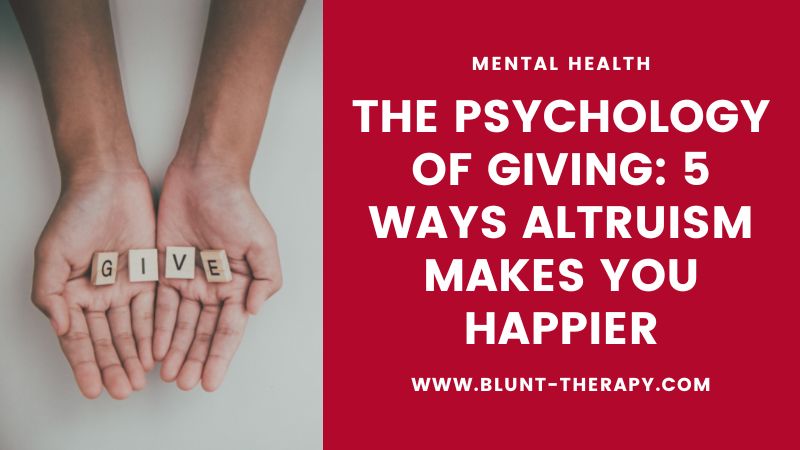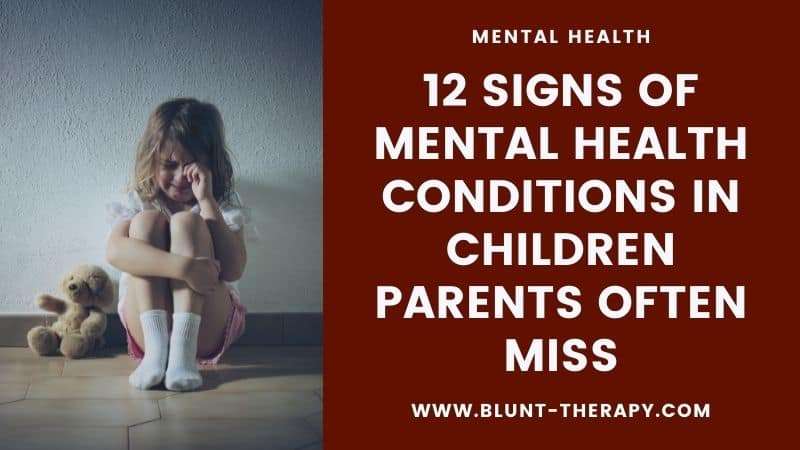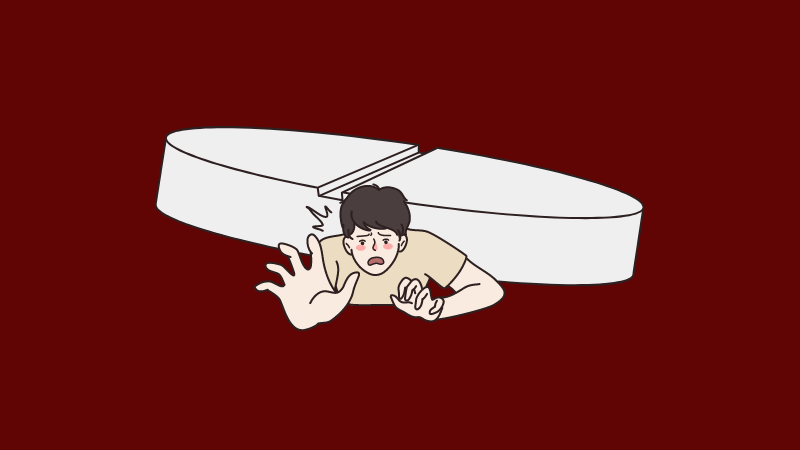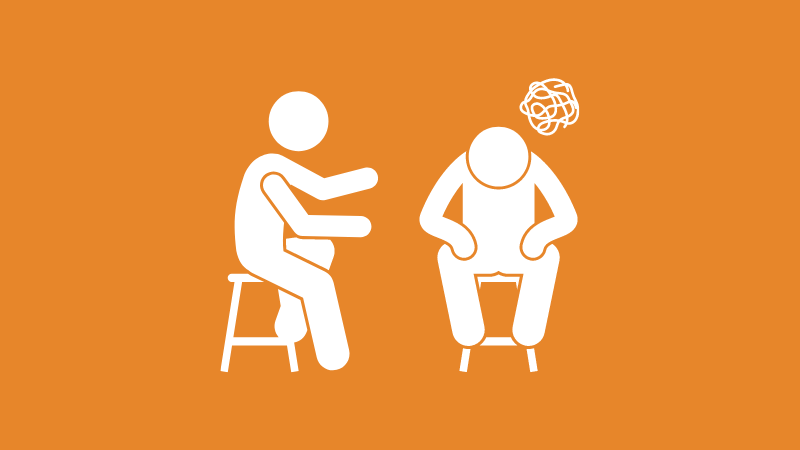Table of Contents
Affiliate link notice: As an affiliate of BetterHelp and other third-party vendors, We will receive compensation if you make a purchase using the links provided on this page. For more information, visit our disclosure page.
Last Updated on December 20, 2021 by Randy Withers, LCMHC
Post-Traumatic Stress Disorder (PTSD) is a fascinating but disturbing mental illness frequently featured in fictional movies like 2009’s The Hurt Locker and nonfiction documentaries like HBO’s We Are Not Done Yet. It’s also a frequent subject explored in TV series. Sometimes the disorder is identified by name; sometimes it’s not.
If you are reading this article, it’s probably because you are curious to learn more about PTSD and how it presents in those affected by it. Perhaps you suspect a loved one suffers from the disorder. Perhaps you show some of the signs and symptoms.
To help you on your journey, I interviewed mental health professionals to see what they thought were accurate depictions of PTSD in movies and TV. Each clinician has worked extensively with trauma survivors, so they are in an excellent position to comment on the matter.
I wanted to compile a list of accurate depictions of PTSD for you, because it is not uncommon for people who are curious about PTSD to turn to popular media to better understand their various presentations. For the record, it’s better to discuss your concerns with a knowledgeable mental health professional, but if you are curious about quality depictions in fiction, hopefully you’ll get some use from this list.
Before we get into the film and TV recommendations, let me briefly explain what PTSD is.

What Is Post-Traumatic Stress Disorder?
Post-Traumatic Stress Disorder (PTSD) is a mental illness that develops as a reaction to a life-threatening situation or event. It is commonly associated with combat veterans, but millions of ordinary Americans struggle with it, too. Car accidents, violence, and sexual assault are just a few reasons why people may struggle with PTSD.
As mental disorders go, PTSD is disturbingly common. In fact, The National Institute of Mental Health estimated that more than 7.5 million adults in America are diagnosed with PTSD every year. Since the pandemic’s beginning in early 2020, that number has almost certainly risen, especially in patients who contracted the disease. This study indicates 20% of patients treated for Coronavirus showed signs of post-traumatic stress.
What Are The Symptoms of PTSD?
PTSD, like any mental illness, must be accurately diagnosed by and treated with the help of a licensed mental health professional. It’s a fairly complicated diagnosis, but these are some symptoms commonly associated with it:
- Recurrent, intrusive distressing memories of the traumatic event
- Flashbacks
- Nightmares about the traumatic event
- Severe emotional distress or physical reactions to something that reminds you of the traumatic event
- Avoiding thinking or talking about the traumatic event
- Avoiding places, activities or people that remind you of the traumatic event
- Negative thoughts about yourself, other people or the world
- Hopelessness
- Memory problems
- Difficulty maintaining relationships
- Feeling detached from family and friends
- Lack of interest in activities
- Difficulty experiencing positive emotions
- Feeling emotionally numb
- Being easily startled or frightened
- Always being on guard for danger
- Self-destructive behavior, such as drinking too much
- Trouble sleeping
- Trouble concentrating
- Irritability, angry outbursts or aggressive behavior
- Guilt or shame
Tragically, those who suffer from PTSD often deal with a host of other serious issues, from substance abuse to relationship difficulties to co-morbid mental illness such as major depressive disorder.
It’s a serious subject. Personally, I’m not wild about using fictional characters as teaching tools, but the therapists I interviewed swear by these films, so here goes:
6 Accurate Depictions of PTSD, According To Therapists
1. The Queen’s Gambit (Netflix)
Recommended by Yena Hu, a Certified Trauma Recovery Coach specializing in Complex PTSD and childhood trauma.
Summary
The Queen’s Gambit is a coming-of-age story about an orphaned child named Beth Harmon who experiences a devastating loss of her parents, then later becomes a chess prodigy and world champion while struggling with drug and alcohol addiction.
Why It Is An Accurate Depiction of PTSD
The Queen’s Gambit accurately depicts PTSD and its connection to childhood trauma and addiction. In the show, we repeatedly see Beth experiencing flashbacks of her parents arguing and the car crash that led to her mother’s death.
Even with her worldwide success as a chess prodigy, we witness Beth struggling with drug and alcohol abuse from an early age, as trauma survivors often use substances to regulate their dysregulated nervous system.
Clinical Insights and Observations
Intrusive memories (often in the form of flashbacks) and avoidance – through substance use to numb and escape emotional pain – are common symptoms of PTSD.
2. Grey’s Anatomy (Meredith Gray)
Recommended by Savannah Davis, LCSW, a therapist in Portland, ME who specializes in treating trauma and anxiety.
Summary
Grey’s Anatomy is a medical TV drama in which the show’s doctors are regularly put through the wringer with traumatic experience after traumatic experience.
Why It Is An Accurate Depiction of PTSD
In the earlier seasons of the series, Meredith Grey showcases how complex trauma can impact people over the long-term. We learn about Meredith’s developmental trauma, including inconsistent caregiving, attachment issues, and the way parental mental health issues affected her.
The impact of the trauma is reflected in Meredith’s unstable sense of self and low self-worth, her difficulties maintaining long-term relationships, her avoidant attachment style, and her mistrust of others.
Clinical Insights and Observations
While it’s not the same as one isolated traumatic event that results in flashbacks and nightmares, it’s a classic representation of complex trauma.
3. Unbelievable (Netflix)
Recommended by Dr. Jenna DiLossi, a Licensed Psychologist who specializes in the treatment of PTSD.
Summary
Netflix’s Unbelievable is a mini series based on a true story of a serial rapist and the investigation to capture the perpetrator
Why It Is An Accurate Depiction of PTSD
Unbelievable has one of the most powerful representations of PTSD due to sexual assault ever depicted on screen. While the show is not specifically about PTSD, the portrayal of the victims accurately and powerfully depicts the many ways PTSD from sexual assault can manifest. The show depicts aspects of PTSD often overlooked, i.e. reckless behaviors, substance use, social isolation, promiscuity and risk taking behaviors. These are all common manifestations of PTSD from sexual abuse, but are often misunderstood or not known.
Clinical Insights and Observations
For PTSD from sexual assault, people don’t realize the breadth of behaviors that can be from response to trauma, and sometimes, these responses are even used to discredit victims in traumatic ways. Unbelievable highlights the ways PTSD shows up and acts as a numbing agent in a way that I have yet to see in other media in popular culture.
4. The Hunger Games (Katniss Everdeen)
Recommended by Cheri Timko, LPC, a Relationship Coach and Licensed Professional Counselor.
Summary
The Hunger Games is a series of books and movies that depict a fictional post-apocalyptic world. In retaliation for their rebellion during a civil war, the winners require the populace to supply teenage boys and girls as tributes to fight to the death annually in a televised competition. Whoever wins the Hunger Games is showered with winnings and is able to temporarily improve the lives of their community.
Why It Is An Accurate Depiction of PTSD
All the characters in the story have lived through prolonged and intense trauma both before the story begins and throughout the narrative. Viewers get a wide variety of the ways PTSD can affect individuals differently.
The main character’s, Katniss, PTSD symptoms originate in her childhood, with the violent death of her father and the deprivation of near starvation. She then experiences the repeated traumas associated with the Hunger Games and the Civil War that ensues.
Clinical Insights and Observations
Katniss becomes more traumatized throughout the series, and her symptoms escalate with the continued trauma she lives through. She clearly demonstrates symptoms of nightmares, hypervigilance, agitation, avoidance of situations and people, anxiety, depression, hostility, self-destructive behaviors, emotional detachment.
The tactics taught to the main characters in the final two installments of the series are grounding techniques that are effective in managing some of the symptoms.
5. Poldark (BBC One)
Recommended by Dr. Allison Gilson, Ph.D., a clinical psychologist who specializes in the treatment of trauma and dissociation.
Summary
Ross Poldark is a Redcoat soldier who returns after three years away fighting in the American War of Independence to find that the world has moved on without him. The series follows Poldark over the years as he gets married, raises his children, and goes to war.
Why It Is An Accurate Depiction of PTSD
Poldark’s best friend, Dr. Dwight Enys, was held prisoner of war by the French. Following his rescue, he begins to show symptoms of PTSD, experiencing flashbacks, jumpiness, and survivor’s guilt. The show also portrays how he improves after he talks to his friends and his wife about his experiences and struggles.
Clinical Insights and Observations
While PTSD or trauma was not acknowledged in the 1700s, its symptoms have been discussed as far back as ancient Greece, as described by Socrates and Aristotle. This show goes beyond the most commonly discussed symptoms to show the impact on a person’s relationships, self-identity, and hope for the future. It also demonstrates how important support and understanding from friends and family can be when recovering from traumatic life experiences.
6. Iron Man 3 (Tony Stark)
Recommended by Randy Withers, LCMHC, a licensed therapist in North Carolina, and the Managing Editor of Blunt Therapy, a blog about mental health.
Summary
Plagued by anxiety, panic attacks, and insomnia after saving the world, billionaire hero Tony Stark must don his Iron Man suit yet again to square off against an enigmatic terrorist known as The Mandarin.
Why It Is An Accurate Depiction of PTSD
Tony Stark shows many of the classic symptoms of PTSD. These include anxiety, depressed mood, hypervigilance, flashbacks, and avoidance. More importantly, Iron Man 3 shows how no one, not even a genius billionaire playboy, is immune from the effects of trauma.
Clinical Insights and Observations
Tragically, there are emotional, physical, and relationship consequences to trauma. Iron Man 3 reminds us all that even a sophisticated suit of armor can’t protect us from the horrors of violence, loss, and regret.
Other Accurate Depictions of PTSD in Film
This is not an exhaustive list. But if you were curious about which films and TV shows therapists think do a good job depicting PTSD, these productions are a great place to start.
Here are a few more I’d like to recommend:
- First Blood (1982)
- American Sniper (2014)
- The Deer Hunter (1978)
- The Perks of Being a Wallflower (2012)
- Born on the Fourth of July (1989)
- The Fisher King (1991)
- Jacob’s Ladder (1990)
- Saving Private Ryan (1998)
- Mystic River (2003)
What other movies and TV series feature accurate depictions of PTSD? Please leave your suggestions as a comment below.
References
- Incidence of Post-Traumatic Stress Disorder after Coronavirus Disease
- NIMH » Post-Traumatic Stress Disorder (PTSD)
- Post-traumatic stress disorder (PTSD) – Symptoms and causes – Mayo Clinic









